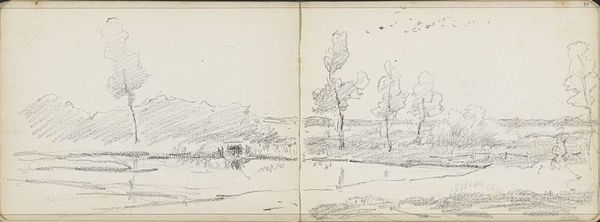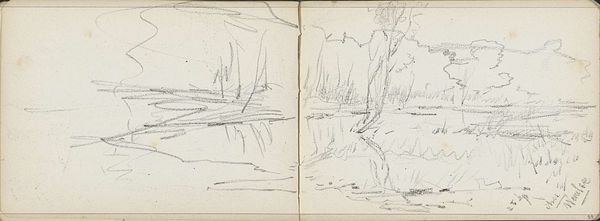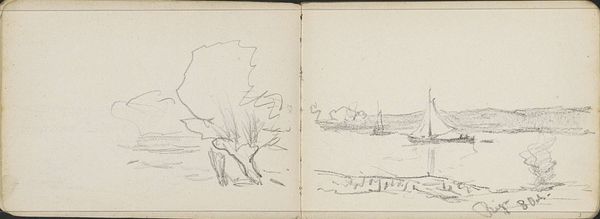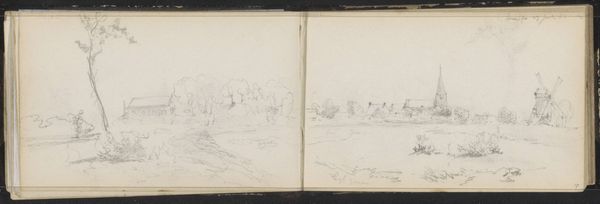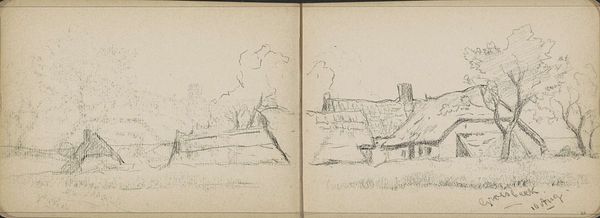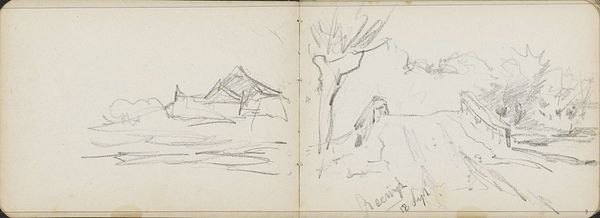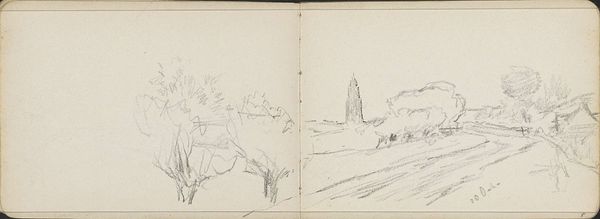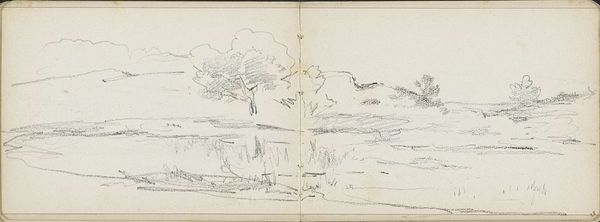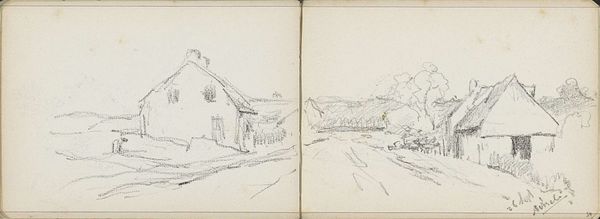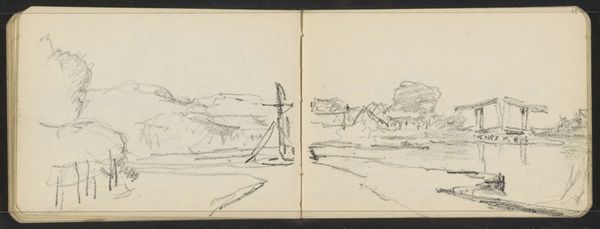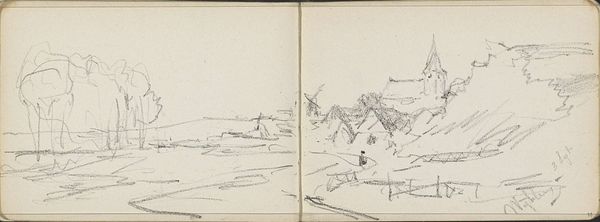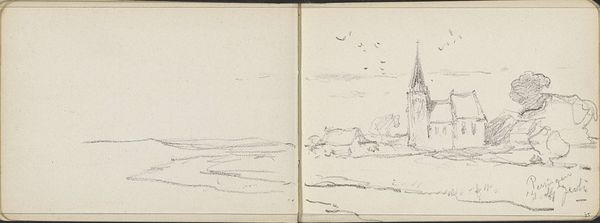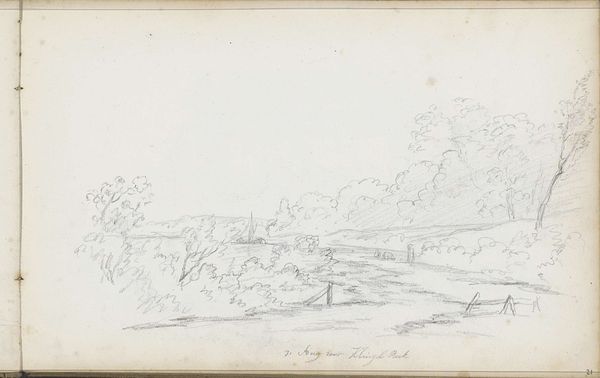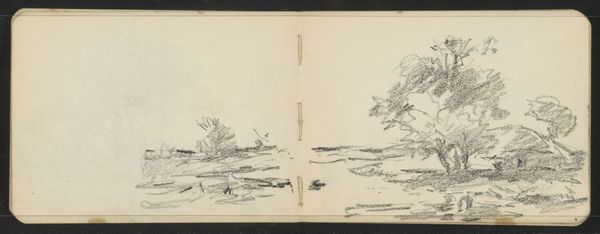
drawing, pencil
#
drawing
#
pen sketch
#
landscape
#
pencil
#
sketchbook drawing
#
realism
Copyright: Rijks Museum: Open Domain
Editor: Here we have Willem Cornelis Rip's "Boerderij aan een weg te Wijchen," dating sometime between 1866 and 1929. It's a modest pencil and ink drawing across two pages of a sketchbook, depicting a farm scene. The quick, almost fleeting nature of the strokes makes me wonder what the artist was trying to capture in that instant. What strikes you about this sketch? Curator: It's interesting that you mention the fleeting nature. The sketch is raw, almost primal, which is further supported by the formal arrangement. Observe the bilateral composition, with the stark negative space in the left panel juxtaposed against the densely rendered farm buildings on the right. It is bisected and unified by the spine of the sketchbook itself, creating a unique interplay of form and void. Notice also Rip's consistent use of short, energetic lines and consider how this element adds texture. Editor: That's fascinating. I was so focused on the image itself, I hadn’t considered the sketchbook's structure as a compositional element. So you're suggesting the negative space isn't simply background, but a deliberate counterpoint? Curator: Precisely. Note the strategic placement of the farmhouse within the right panel, and consider how its angled orientation—the roof lines especially—create dynamic movement, drawing the eye upwards and towards the right, while also emphasizing the flat picture plane of the page itself. It begs the question of perspective. What does its inclusion, or omission, tell us about Rip’s intentions in creating this sketch? Editor: It does give a sense of immediacy. Perhaps a desire to convey feeling over meticulous representation. Thank you, seeing the piece through a formal lens really illuminates its hidden depths. Curator: Indeed. This piece presents an intriguing dialogue between representation and abstraction, which creates its undeniable appeal.
Comments
No comments
Be the first to comment and join the conversation on the ultimate creative platform.
